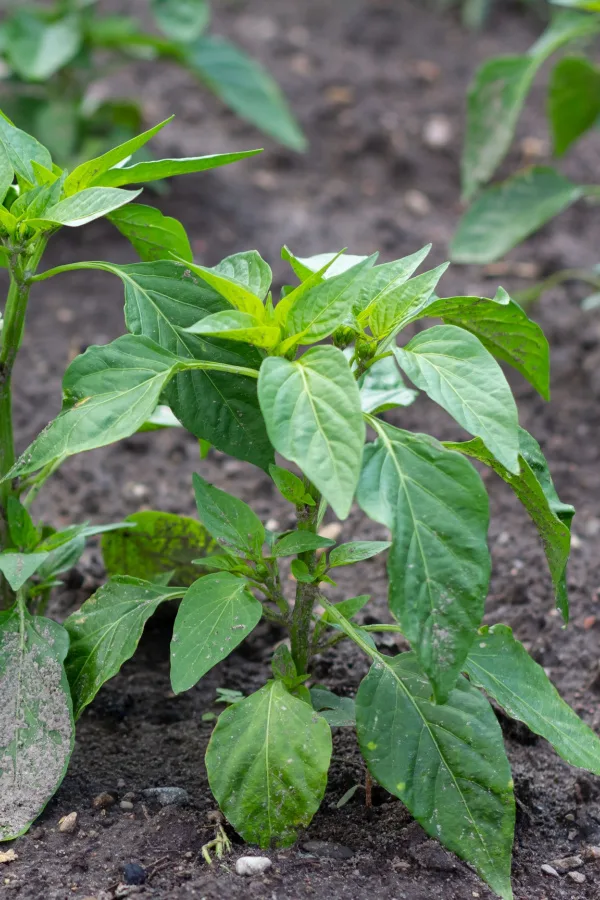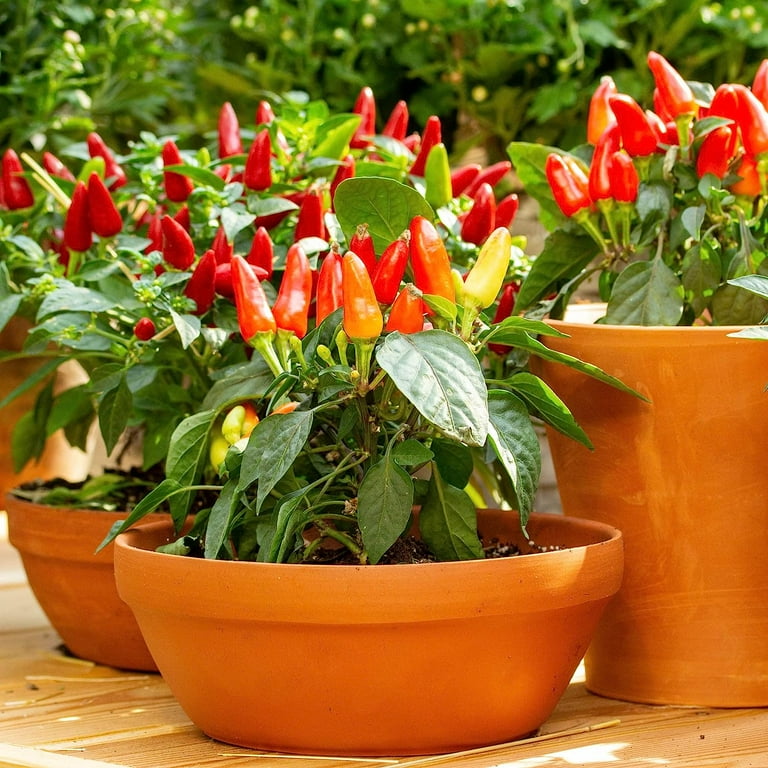Picking the Best Fertilizers for Peppers: Professional Recommendations
Picking the Best Fertilizers for Peppers: Professional Recommendations
Blog Article
Organic Vs. Synthetic Fertilizers: Which Is Best for Supporting Healthy And Balanced Pepper Plants?
In the realm of nurturing healthy pepper plants, the selection in between organic and artificial plant foods stands as a crucial decision with far-reaching implications. While both choices objective to supply essential nutrients to sustain plant development, the subtleties of their influence on the dirt, plant wellness, and the atmosphere trigger a debate that mirrors throughout the horticulture area. Recognizing the distinct benefits and prospective mistakes of each fertilizer type is crucial for pepper growers seeking to maximize their returns while keeping a sustainable and eco-conscious strategy.
Advantages of Organic Plant Foods
Organic fertilizers provide a lasting and environmentally-friendly technique to nourishing pepper plants, supplying essential nutrients without using artificial chemicals. These natural fertilizers are stemmed from natural resources such as garden compost, manure, bone meal, and algae, promoting soil health and wellness and biodiversity. Unlike synthetic fertilizers, natural choices release nutrients gradually, making certain a steady and well balanced supply for pepper plants to prosper.
One substantial benefit of organic plant foods is their capacity to boost soil structure and water retention. By boosting dirt health, organic plant foods advertise valuable microbial task, which assists in nutrient uptake by pepper plants. In addition, natural fertilizers reduce the danger of chemical run-off, protecting water sources from pollution and protecting the environment.
Furthermore, natural plant foods contribute to long-lasting dirt fertility by advertising the growth of useful soil organisms. These organisms assist break down natural issue, releasing nutrients in a type that is easily available to pepper plants. best fertilizers for peppers. By promoting a healthy and balanced dirt community, natural plant foods support sustainable pepper farming practices that benefit both plants and the environment
Downsides of Synthetic Plant Foods
Synthetic fertilizers, in comparison to their natural equivalents, posture different disadvantages when used to nourish pepper plants, affecting both plant health and wellness and ecological sustainability. One major drawback of artificial fertilizers is their propensity to seep nutrients from the soil quickly. This fast leaching can bring about vitamins and mineral imbalances in the soil, causing plants to deal with poisonings or deficiencies. In addition, synthetic plant foods can hurt useful dirt microorganisms, such as earthworms and valuable germs, disrupting the soil environment's balance.
Moreover, the overuse of artificial fertilizers can add to water pollution. Excess fertilizers not absorbed by plants can wash away into water bodies, bring about eutrophication, where algae blossoms diminish oxygen degrees in the water, damaging marine life. Artificial fertilizers are normally acquired from non-renewable resources, such as fossil fuels, contributing to carbon emissions and environmental deterioration during their manufacturing.
Nutrient Absorption Comparison
When comparing artificial and natural fertilizers in terms of nutrient absorption, natural plant foods have the benefit of providing a much more balanced and slow-release source of nutrients. Organic fertilizers contain a selection of macro and micronutrients that are not just useful for the plants however also promote healthy and balanced dirt microbial task, which assists in nutrient uptake.
In addition, organic plant foods enhance dirt framework and water retention ability, permitting pepper plants to gain access to nutrients much more efficiently. This enhanced soil high quality promotes origin development, enabling better nutrient absorption. Artificial plant foods, although at first boosting plant growth because of their high nutrient concentrations, might impede long-lasting click to read more nutrient absorption by degrading dirt health in time.
Environmental Effect Considerations

On the various other hand, synthetic plant foods, although commonly even more immediately available and concentrated to plants, can have detrimental impacts on the environment if not applied appropriately (best fertilizers for peppers). Their production needs high power inputs, leading to greenhouse gas discharges and adding to climate adjustment. Moreover, the overflow of excess artificial fertilizers can infect water sources, causing eutrophication and hurting aquatic ecosystems.
Ideal Plant Food Practices for Peppers
When fertilizing pepper plants, enhancing nutrient uptake and minimizing environmental influence are crucial factors to consider. To attain this, it is vital to adhere to ideal plant food practices customized to the specific needs of pepper plants. One critical practice is to perform a soil examination before using any plant foods. This test can determine the pH degree of the dirt and determine any nutrient deficiencies, guiding you in picking one of the most appropriate plant food formulation.
Another important method is to feed pepper plants at the correct time. Generally, peppers profit from getting fertilizer at planting and after that once more when they start to flower. Over-fertilizing can result in vitamins and mineral inequalities and hurt the plants, so it is crucial to comply with recommended application prices.
Additionally, picking a well balanced fertilizer with an NPK ratio that suits pepper plants' requirements is essential. Organic plant foods, such as compost or manure, can be outstanding choices as they launch nutrients gradually and boost dirt framework gradually. Synthetic plant foods can supply a quick nutrient increase when required. index Eventually, incorporating artificial and organic plant foods deliberately can assist nurture healthy and balanced pepper plants while lessening ecological effect.
Final Thought

Organic plant foods offer an environmentally-friendly and sustainable strategy to nourishing pepper plants, giving essential nutrients without the use of synthetic chemicals. Unlike artificial fertilizers, organic options release nutrients gradually, making certain a well balanced and steady supply for pepper plants to flourish.
Synthetic fertilizers, in contrast to their organic equivalents, pose various drawbacks when used to nurture pepper plants, affecting both plant health and ecological sustainability. When comparing artificial and organic fertilizers in terms of nutrient absorption, natural plant foods have the benefit of giving an extra well balanced and slow-release resource of nutrients.Furthermore, natural fertilizers enhance dirt structure and water retention ability, enabling pepper plants to accessibility nutrients a lot more efficiently.
Report this page